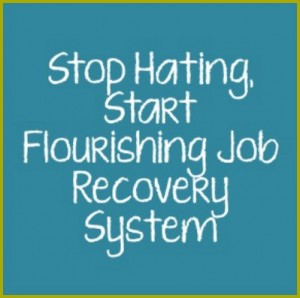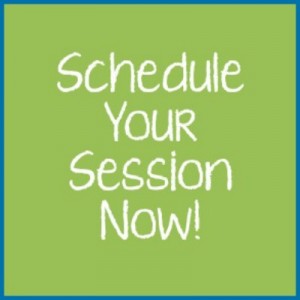The other day I was researching a term for a job management teleclass I was preparing.
I input the term I was researching and Google came back with over 2 billion responses. Yes, that’s billion with a “b.”

And that’s just one little Google inquiry.
Now think about the massive amounts of information that are floating through your daily work life. I think about this when people call me, at wits end, frustrated with their work situation.
“I sit in meetings all day and feel like I’m not getting anything done.”
“There just isn’t enough time to get everything done.”
“I get hundreds of emails; how am I supposed to do my job?”
“My spouse is freaking out about how much time I spend at work.”
Do you struggle with managing your workload and leaving work on time?
If so the vast amount of information gushing at you in any moment of the work day might be a culprit.
And by that I mean work related information. When you add in the lure of Facebook, your Google reader, online articles that beg your attention, texts, personal emails, favorite blogs, funny cat videos on YouTube and and … well, it’s positively overwhleming!
Often we confuse “information” with “important.”
Not all work carries the same value.
Yet often we are tricked into treating all information equally. You read the next article, process the next email, sit in the next meeting. You assign them all equal weight, and equal importance.
You may be tricking yourself into thinking that you actually NEED to process all that information. I would argue that you do, in fact, not.
It is this inability to parse and differentiate information that keeps the work day very long, and very trying. It challenges your ability to leave work on time. Because everything stays on the table, and nothing (or very little) gets traded off.
And when an entire organization treats work, and information, this way, it’s not surprising that nearly 70% of workers label themselves as dissatisfied with work. And “super-sized workload” is one of the main culprits.
While there are enormous benefits to the amount of information we have at our fingertips to access – more that at any time in human history – it can also create other unitended consequences in the workplace. Here’s how information overload may be affecting you.
- It increases your sense of overwhelm, and your stress level.
It’s bad enough that you’ve probably had to take on additional tasks in your work. Being unable to separate the wheat from the chaffe on the information side is only adding to your workload. - It makes you less efficient.
Tempted to multi-task because there’s too much coming at you? You’re reading emails in meetings, or have 8 desktop files open simultaneously. Study after study has shown that completing multiple tasks at the same time always takes longer than when you individually focus. And, those who multi-taks secrete more stress hormones than those who do not. - It lowers your job satisfaction.
Too much incoming information dampens your ability to cope with problem solving and decision making. Then, you’re unsure. Possibly, you lose confidence. Then how good do you feel about the job you’re doing and your satisfaction with it?
The next time you’re frustrated with feeling overwhelmed, here are couple of things I’d like you to try.
I found that one of the big secrets to changing the way we do things – is by first becoming more conscious of the situations we want to change.
As you go through the day, notice how you are managing the information that surrounds you. As you touch emails, messages, reports, and sit in meetings, ask yourself:
- Is this “important” or “information?”
Information in and of itself is not necessarily useful. If it doesn’t support your most critical priorities, put it aside. - Am I “clear” or “confused?”
Before you tackle a task with the information at hand, validate if you are clear on what you’re trying to do, and how the information you have supports that mission. If you can’t make the correlation, take a step back and jettison the overflow. - Am I “creating” or “processing?”
Are you using the information coming at you to accomplish something – like progress on your most critical priorities – or are you just mindlessly reading material or going through emails without a greater end in mind?
All this “information” has tricked you into tipping the scale of the clock precariously out of your favor. Maybe you’ve accepted that more information equals more “stuff to do.”
In reality, however, it is not. And so your challenge becomes not just using the information you’ve got at hand, but pulling the dumpster up and knowing what needs to be disposed of so that you can focus on your most important mission.
Take action!
Go through your next 5 workdays and up your consciousness about the information streaming by you. Start asking yourself the three questions above each day. Leave a comment below and tell me what you discover when the week is done!



Great advice as usual Lea! I just shared this post on FB. Thanks!